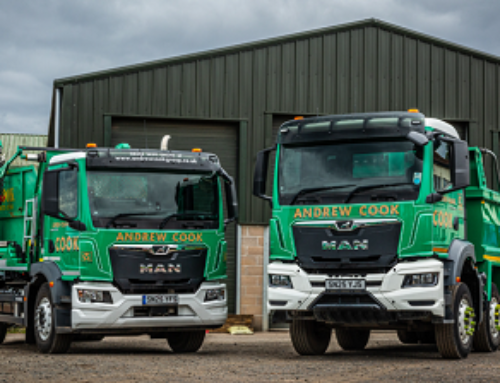Trade groups welcome government depot charging scheme
 HGV, van and coach operators will be able to benefit from a share of £30 million in grant funding to install chargepoints in their depots, the government has announced.
HGV, van and coach operators will be able to benefit from a share of £30 million in grant funding to install chargepoints in their depots, the government has announced.
The new depot charging scheme will cover 75 per cent of chargepoint and civil costs incurred up to a maximum of £1 million across all sites.
The scheme is limited to one application per organisation, though there is no limit on the number of sites the application can cover.
It is open for applications now from public and private sector fleets, local authorities and non-profit organisations across all four UK nations.
In order to be eligible, among other conditions, fleets must be able to complete the installation of chargepoints at site(s) by 31 March 2026, and must own, lease or order at least one electric vehicle.
Interested parties can apply here until 4pm on 28 November, or until funding has been exhausted (whichever is sooner).
Chris Ashley, net zero lead at the Road Haulage Association, said: “We strongly welcome this funding from the Department of Transport to support our industry’s decarbonisation journey.
“This investment to help operators with their preparations for net zero is invaluable. Quite simply, without the ability to charge at depot we are not going to see the introduction of electric HGVs, coaches and vans at the pace required.
“It is a welcome boost when costs and a lack of public charging sites continue to hold businesses back from investing in zero-emission vehicles and technologies.”
The association recently released a report following an industry-wide survey, suggesting that 70 per cent of hauliers and 75 per cent of coach operators had no current plans to adopt zero-emission vehicles – with infrastructure deficiencies, cost and vehicle performance concerns cited as among the key reasons for failure to invest.
RHA managing director Richard Smith also welcomed the funding, but said much more would need to be done in order to meet net zero targets.
“We seek urgent clarity on how the full £2.6bn announced by the government in last month’s spending review will be allocated to help businesses decarbonise,” he said.
“We also urgently need to see how hydrogen-powered lorries and coaches can provide the solutions for hard-to-decarbonise operations which electric cannot currently cater for, such as long distance and heavy haulage operations.”
Mr Smith also welcomed a call to action by the roads minister Lilian Greenwood for visitor spots to provide more EV chargepoints in order to help hasten decarbonisation.
He said: “It’s encouraging that the [minister] is urging tourist destinations to offer electric vehicle points.
“It makes perfect commercial sense to increase charging capacity at sites which would help encourage more visitors through the door – and would take some of the strain from public charging infrastructure.
“It would also benefit coach, haulage and van operators who have electric vehicles – or are considering bringing them into their fleets – if they know [they] can recharge onsite once they’ve dropped off people and goods…
“We continue to campaign for more electric charging infrastructure on our road networks to stimulate transition away from diesel. Similar moves at visitor destinations will help.”
Logistics UK’s deputy policy director Michelle Gardner said the depot charging scheme would “support operators looking to install the infrastructure needed to charge electric vehicles swiftly and effectively”.
But she warned: “Challenges still exist for the logistics sector on the road to decarbonisation – the public charging infrastructure for commercial vehicles is still woefully underpowered and requires an effective plan to ensure it is scaled rapidly.
“To address wider challenges with depot charging, our sector must be prioritised for grid connections with high and opaque costs being addressed. We will be maintaining close contact with government over the coming weeks to ensure that these issues are addressed at pace.”












